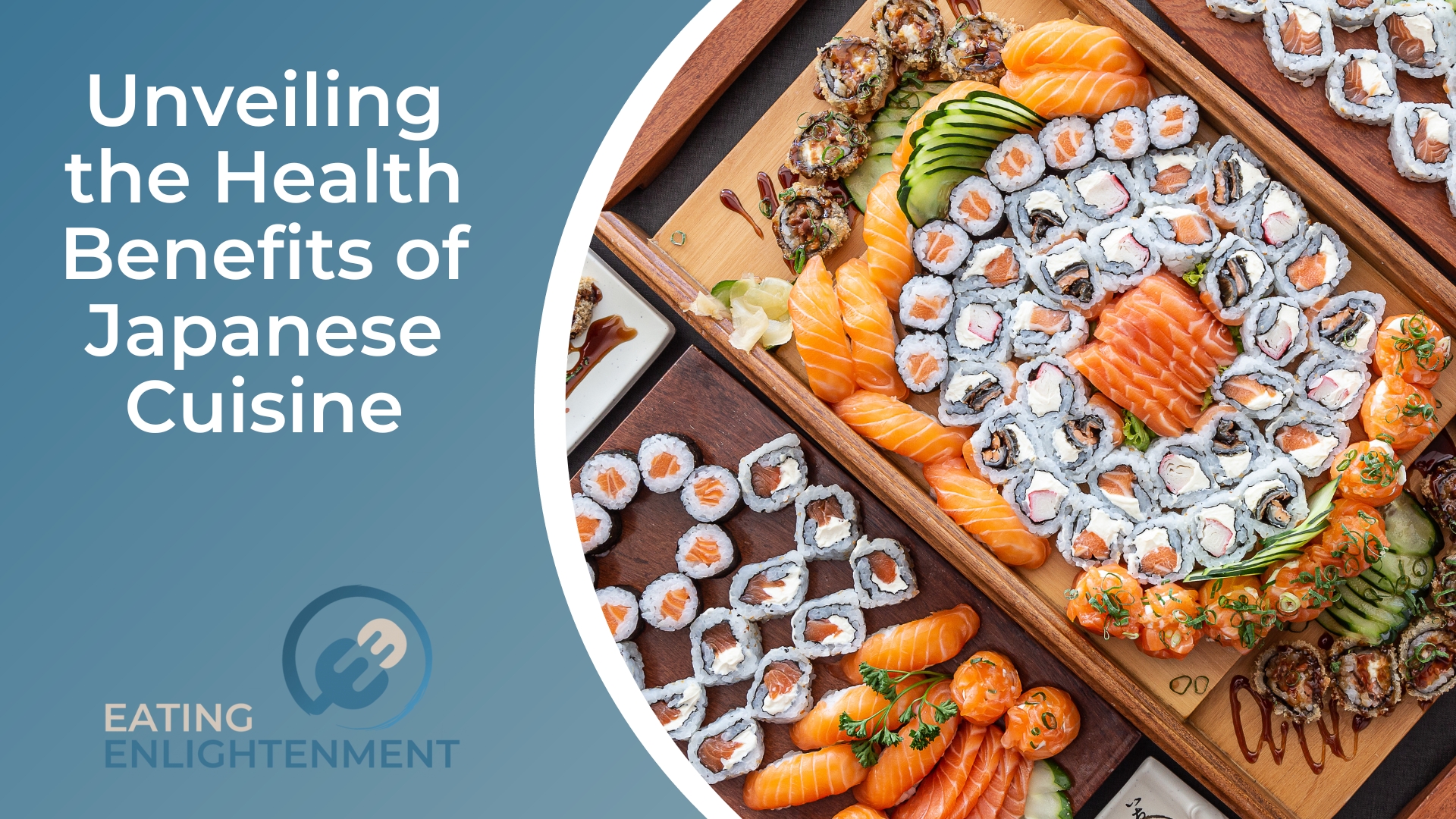In a world where dietary choices play a pivotal role in overall well-being, Japanese cuisine stands out as a beacon of health and longevity. Renowned for its exquisite flavours, meticulous preparation, and aesthetic presentation, Japanese food is not merely a feast for the taste buds; it is a celebration of health and balance. This blog post will delve into the health benefits that make Japanese cuisine a unique and valuable addition to a wellness-focused lifestyle.
Nutrient-Rich Ingredients
One of the cornerstones of Japanese cuisine’s health appeal is the emphasis on fresh, high-quality, and nutrient-dense ingredients. Staple components like fish, seaweed, tofu, miso, and an array of colourful vegetables form the foundation of many Japanese dishes. Fish, particularly fatty fish like salmon and mackerel, are rich in omega-3 fatty acids, which are renowned for their heart-protective benefits.
Additionally, the abundance of vegetables provides essential vitamins, minerals, and antioxidants crucial for overall health. The key ingredients defining its distinct flavours are at the heart of Japanese cuisine. Rice, a staple in Japanese meals, is the foundation of many dishes and is often accompanied by a variety of side dishes, such as pickles (tsukemono) and miso soup. Soy sauce, made from fermented soybeans, adds depth and umami to many dishes, while mirin and sake contribute sweetness and complexity. You can find these shops at a Japanese food shop.
Mindful Eating

The Japanese practice of mindful eating is deeply ingrained in their culinary culture. The presentation of food in Japan is an art form, with meticulous attention given to aesthetics. This mindfulness extends to the act of eating itself, encouraging individuals to savour each bite, appreciate the flavours, and recognise feelings of satiety. This approach not only enhances the dining experience but also aids in better digestion and weight management.
Low in Saturated Fat
Traditional Japanese cuisine is notably low in saturated fat, which is a significant contributor to heart disease. The reliance on lean proteins like fish, tofu, and legumes, coupled with minimal use of oils and fats in cooking, contributes to a heart-healthy diet. This characteristic is one of the reasons why Japan boasts one of the lowest rates of cardiovascular diseases in the world.
Fermented Foods for Gut Health
Fermented foods, a prominent feature of Japanese cuisine, offer a myriad of benefits for gut health. Staples like miso, soy sauce, and pickled vegetables undergo fermentation, fostering the growth of beneficial probiotics. These probiotics contribute to a healthy gut microbiome, improving digestion, and nutrient absorption, and supporting the immune system. The gut-brain connection is increasingly recognised, and a flourishing gut ecosystem has positive implications for mental well-being as well.
Green Tea Elixir
No exploration of Japanese cuisine’s health benefits would be complete without highlighting the ubiquitous green tea. Green tea is a potent source of antioxidants, particularly catechins, which have been linked to a range of health benefits. These antioxidants exhibit anti-inflammatory properties, support cardiovascular health, and may even play a role in cancer prevention. The ritualistic preparation and consumption of green tea also offer a mindful respite, contributing to stress reduction.
Balanced and Varied Diet
Japanese cuisine embodies the principles of balance and variety, with meals typically featuring a diverse array of ingredients. The traditional Japanese meal, known as ichiju sansai, comprises a bowl of rice, a bowl of miso soup, and three side dishes. This structure ensures a mix of carbohydrates, proteins, and vegetables, promoting a well-rounded and nutritionally balanced diet. The emphasis on portion control further contributes to weight management and overall health.
Low Incidence of Chronic Diseases
Japan consistently ranks high in global life expectancy, and a significant factor contributing to this longevity is the low incidence of chronic diseases. The Japanese diet’s focus on whole foods, minimal processing, and the absence of excessive sugars and unhealthy fats aligns with dietary recommendations for preventing conditions such as diabetes, obesity, and certain cancers.
In a world where dietary patterns are increasingly linked to health outcomes, Japanese cuisine stands out as a shining example of a holistic approach to well-being. The incorporation of nutrient-rich ingredients, mindful eating practices, and a focus on balance contribute to a myriad of health benefits. From heart-protective omega-3 fatty acids to gut-supportive fermented foods, the health virtues of Japanese cuisine extend far beyond its delicious flavours. In the tapestry of global cuisines, Japanese culinary traditions weave a story of harmony between flavour and well-being.
The meticulous craftsmanship applied in the kitchen mirrors the Japanese approach to life—a quest for balance and longevity. As the world increasingly seeks wholesome dietary choices, the health benefits of Japanese cuisine stand as a beacon, guiding us toward a path where nourishment is not just a necessity but a celebration of life. So, let the allure of umami, the simplicity of sushi, and the artistry of presentation inspire a mindful journey towards a healthier, more vibrant existence—one delicious and nutritious Japanese dish at a time.
Embracing the principles of this culinary tradition can be a delectable journey toward enhanced health and vitality. So, the next time you savour a bowl of miso soup or indulge in fresh sashimi, remember that you’re not just enjoying a meal – you’re nourishing your body and soul.



